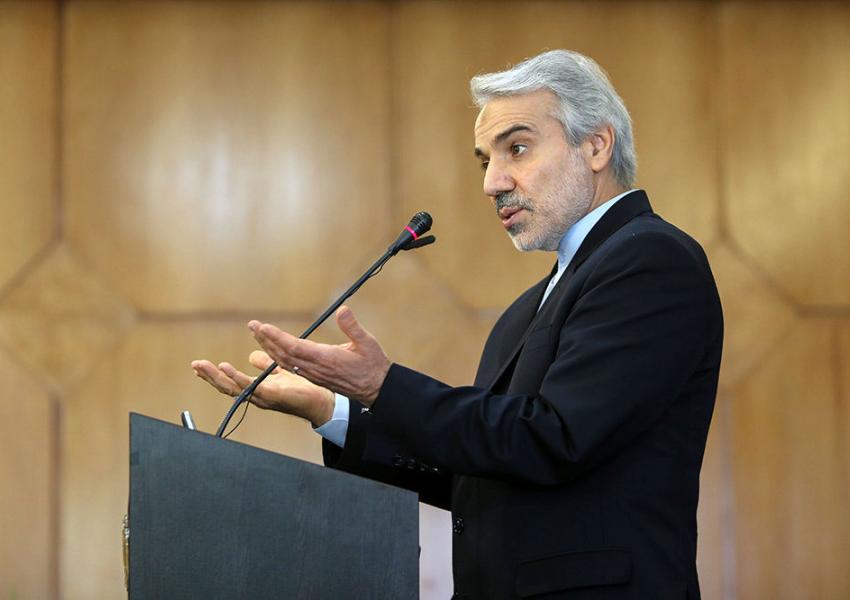
Iran Cannot Sell 'Even A Drop Of Oil', Says Top Budget Official
Vice-President Mohammad Bagher Nobakht, who is also the Chairman of Iran's Planning and Budget Organization (PBO) says "sanctions do not allow Iran to sell even a drop of oil."
Referring to the US sanctions on Iran's oil exports and international banking that was imposed following the US pull-out from the 2015 nuclear deal (JCPOA), Nobakht added in his remarks on Thursday September 3 that even if Iran was able to sell oil in the international market, it would impossible to repatriate the revenues.
On August 9 Nobakht was quoted by Iranian news website Mashregh News as having said that during the preceding months Iran managed to repatriate only 6 percent of its oil income from international markets.
However, he denied that the government borrowed money from the Central bank to make ends meet, but did not say where did the government get the money for its day to day spending.
In an interview that was pulled from the official news agency IRNA, Nobakht complained that in the past the hardest form of sanctions led to an oil for food scheme like in the case of Iraq under Saddam Hussain, "but now, we are not allowed to sell even one drop of oil."
Meanwhile, in a self-contradictory remark, Nobakht claimed that Iran will continue Supreme Leader Ali Khamenei's idea of a "leap in production" regardless of the financial strains of sanctions, but he did not explain how.
During the past months, President Hassan Rouhani has been alternating between portraying a gloomy picture of the economy one day and reversing to say that everything was all right the next day.
In the latest examples, he said that Iran was rich enough to spend billions of dollars on rural development and creating jobs. Thursday morning he was quoted as drawing a disparaging image of the state of the economy. Yet in the afternoon of the same day, talking about putting an end to lockdown and the reopening of schools next week, he reiterated that everything was fine on the economic front.
Regardless of the sanctions, Iran has been continuing to export oil at small scales through ship to ship transfers and at times, tanker trackers world over have traced Iranian ships carrying oil under other flags while turning their GPS devices off.
Iran's economy was badly damaged following the US pull-out from the JCPOA in 2018, but the situation got extremely worse as like the rest of the world the country was hit by the coronavirus pandemic in February.
Officials in Tehran predicted in March that up to two million Iranians will lose their jobs as the result of the pandemic and President Rouhani has since been challenging health officials who call for extended lockdowns, and he pushed for an early reopening of businesses although health officials charge this could lead to a new wave of contagion.
Rising costs and declining revenues usually translates into negative growth rate. According to the International Monetary Fund, Iran has been suffering from a negative economic growth rate for the third consecutive year. Meanwhile, the country's gross domestic product (GDP) has sharply dropped after 2017 and the government has been facing a nearly 50 percent budget deficit in the current year.
In the meantime, alongside a drop in oil output that has declined to 1.9 million barrel per day, and a sharp nose-dive in crude exports that have fallen to around 100,000 barrels per day, the drop in oil prices as a result of the COVID-19 pandemic made the situation even worse for Iran.
The Iranian government has based its annual budget on selling one million barrels of oil per day at the price of 50 dollars per barrel, but the current price is often around 30 dollars. With its current rate of cash exports, Iran will only meet a fraction of its projected oil revenues. Iran expected to generate around $22 billion from oil exports; a far cry from its $110 billion dollar revenue in 2011.








